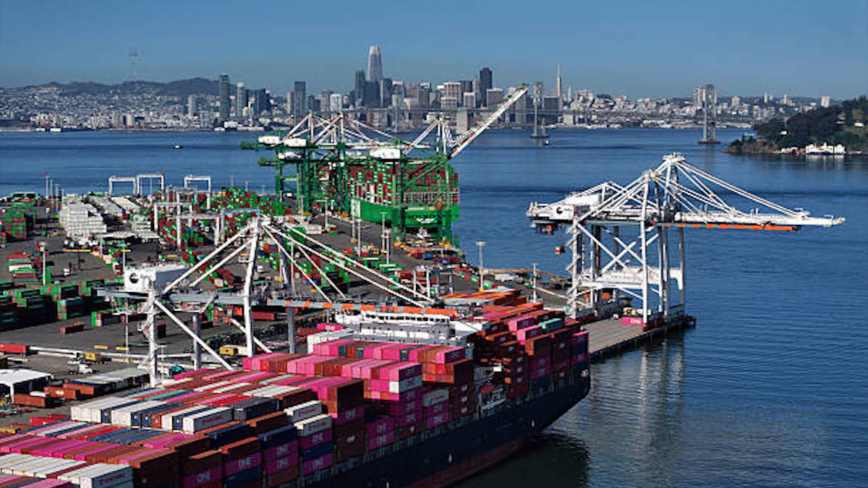Direct translation
Which goods will become more expensive with the next round of U.S. tariffs
Editor : Liu Mingxiang / Publisher : New Tang Dynasty Express Production Team / https://www.ntdtv.com/gb/2025/04/15/a103976738.html / Image : Container ships dock at the Port of Oakland in Oakland, California, on April 9, 2025. (Justin Sullivan/Getty Images)

U.S. President Trump is further advancing his new tariff plan, moving from comprehensive reciprocal tariffs to industry-specific tariffs. Some industries are facing Section 232 investigations, and new tariffs implemented later may make the goods of these industries more expensive.
Trump's industry investigation is based on Section 232 of the Trade Expansion Act of 1962, which allows the government to protect domestic industries for national security purposes.
The U.S. Department of Commerce has previously launched Section 232 investigations into copper and lumber. According to the Federal Register published on 14 April 2025, the Trump administration began investigating the pharmaceutical and semiconductor industries earlier this month.
Copper and other key minerals
The United States has not yet announced which key minerals will be investigated, but an investigation into copper is already underway. Copper is a key component in the electrification and defense industries in the United States. About 50% of the copper in the United States is imported.
As energy-intensive industries such as artificial intelligence and blockchain grow, demand for copper will increase. Prices will also rise.
Timber
Softwood is a key material for home construction, and 30% of the demand in the United States is met by imports. Home builders warn that tariffs on softwood and other materials may lead to higher lumber prices and exacerbate the housing affordability crisis.
Rising costs for imported wood will also affect the price of furniture and even toilet paper. To support the U.S. timber industry, the Trump administration recently ordered the opening of half of the national forests for logging.
Drugs
ING healthcare economist Diederik Stadig wrote last week that Trump wants to lower drug prices and support U.S. manufacturing, and while branded drug production may gradually shift to the United States, a significant increase in generic drug production is unrealistic.
It will take about 10 years to build new facilities. Tariffs will push up medical costs and affect drug affordability. Under a 25% tariff, common drugs will increase from 82 cents to 94 cents per tablet, an average of $42 more per year. The cost of complex prescription drugs such as cancer treatments could increase by $8,000 to $10,000.
Semiconductors
Medical devices, routers, laptops, smartphones, cars, home appliances, LED bulbs and other products contain semiconductor chips. A new car even requires thousands of chips. Semiconductor chips are known as the "crude oil of the 21st century."
The chip shortage during the epidemic has led to tight supply of products such as cars and pushed up inflation. The United States still lacks electronic assembly capabilities. Chips produced in the United States need to be shipped to Taiwan, South Korea, China or Mexico to be assembled into finished products. These finished products will face tariffs when they are imported into the United States, resulting in higher prices.


No comments:
Post a Comment